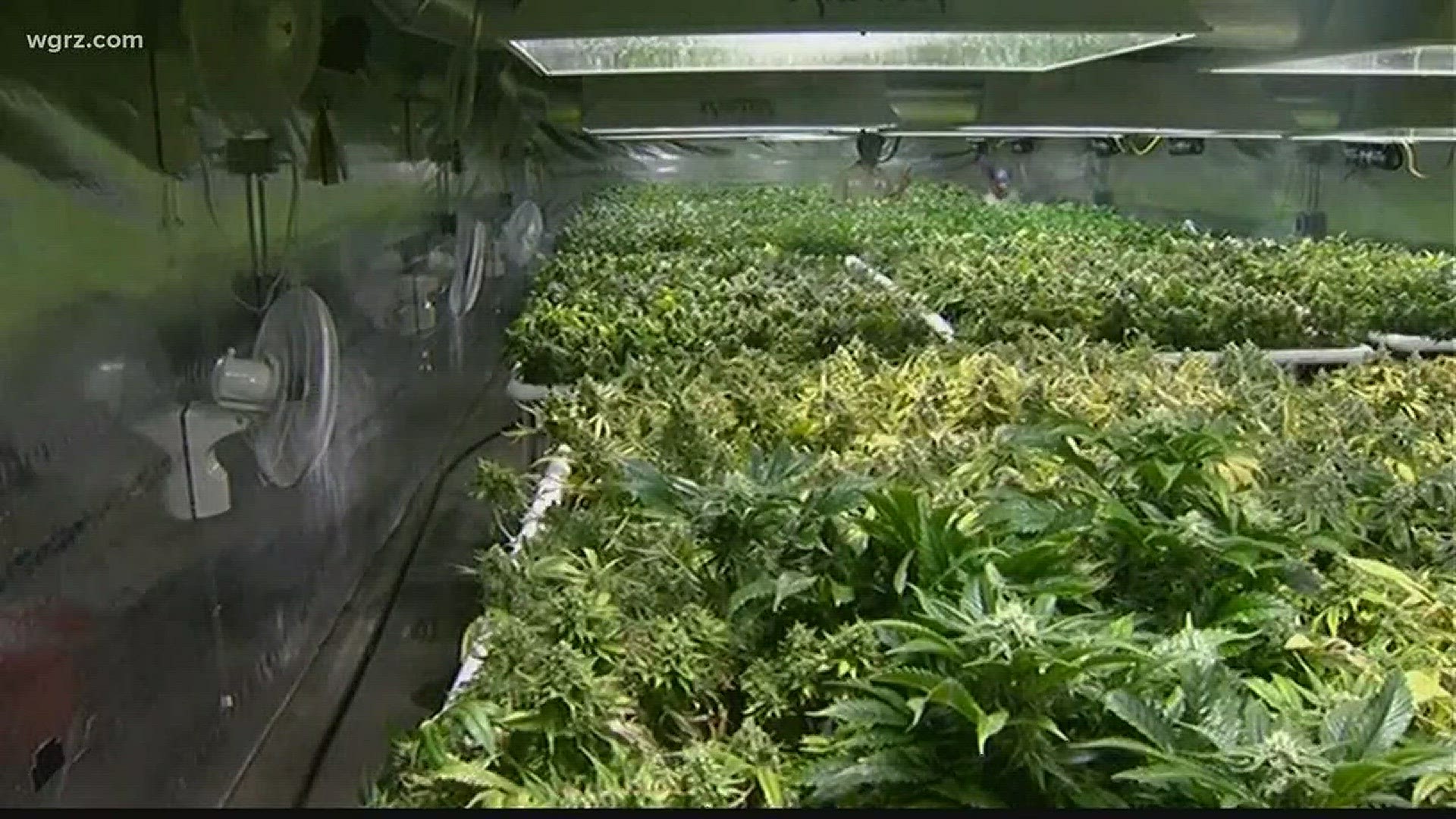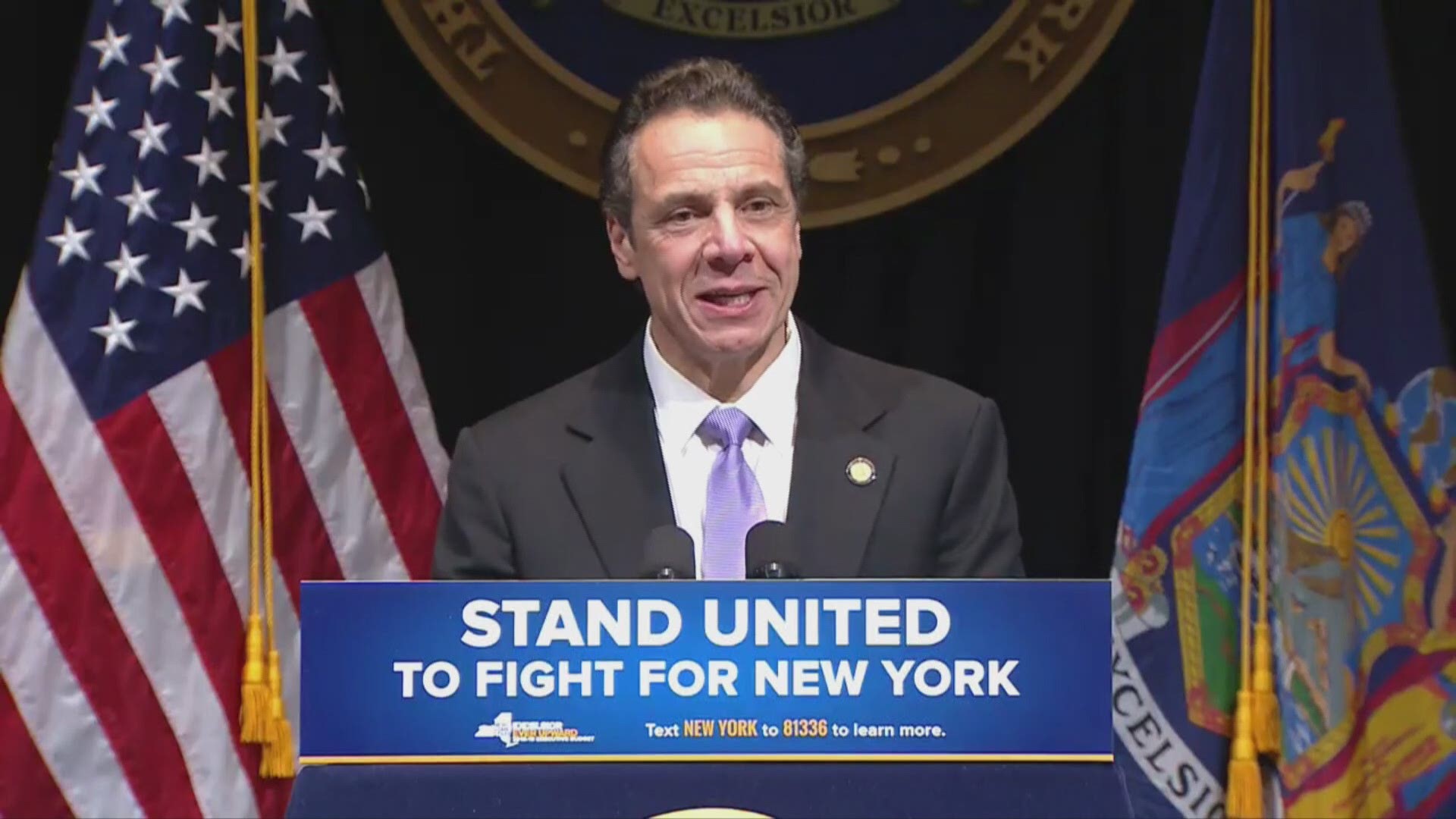ALBANY - New York will study whether it's plausible to legalize marijuana for recreational use as neighboring states move ahead with it, Gov. Andrew Cuomo announced Tuesday.
Cuomo called on lawmakers to approve funding for a feasibility study as part of his annual state budget address, where he laid out his spending proposal for the coming year.
The study would examine the effect of legalization in Massachusetts, Vermont and possibly New Jersey would have on New York and what types of potential roadblocks could exist if the state were to relax its marijuana laws, particularly as the Trump administration has given prosecutors more leeway to prosecute federal-level marijuana laws.
Cuomo's announcement comes after at least nine states and Washington D.C. have legalized small amounts of marijuana for recreational use.
That includes two of New York's neighboring states: Massachusetts, whose voters approved legalized pot in 2016, and Vermont, where lawmakers voted in favor if it earlier this month.
More:
Incoming New Jersey Gov. Phil Murphy has also said he supports legalizing recreational marijuana. New York's study would be led by the state Department of Health, which would work with State Police and other state agencies to examine the issue, Cuomo said.
"This is an important topic, it is a hotly debated topic — pardon the pun — and it would be nice to have some facts in the middle of the debate once in a while," Cuomo said during his 40-minute address.
Lawmakers were briefed on Cuomo's budget and the study Tuesday morning ahead of his 1 p.m. speech.
New York is one of 29 states to allow marijuana use for medical purposes, according to the National Conference of State Legislatures.
But New York's program is one of the most restrictive in the country. The drug is not permitted in smokeable forms, with certified patients instead able to purchase items like creams, oils and pills. Cuomo has long expressed caution over relaxing the state's recreational-marijuana laws, and many of the restrictions in the medical-marijuana program were insisted on by him.
As of Jan. 9, there were 40,934 certified patients in New York's medical-marijuana program, according to the state Department of Health.
Robert Mujica, Cuomo's budget director, said neighboring states' moving ahead with regulated marijuana programs spurred the need for the new study.
"I don't know how long it will take," Mujica said. "We just announced it. But again, once the states around you start to regulate an activity or allow it, there is leakage, there are criminal justice impacts, there are economic impacts, and so we want to see what goes on."
The study was cheered by one of the marijuana companies active in New York's medical program.
“Governor Cuomo’s commission to legalize marijuana could be a game-changer that puts New York at the center of a national movement gaining momentum by the day," Hillary Peckham, chief operating officer of Etain Health Inc., said in a statement.
--
The proposal by Gov. Cuomo came only 24 hours after former Erie County Executive Joel Giambra, a potential GOP challenger for governor, called for full legalization of recreational marijuana.
On Tuesday, Giambra said he believes Cuomo's announcement was politically calculated — but he argued it doesn't go far enough.
"There's no more need to study this," Giambra said. "It's time to be aggressive, time to be proactive, because all the states around us are doing it."
It's unclear what type of legislative support Cuomo's proposal will receive. At least one member of the GOP, State Senator Robert Ortt of North Tonawanda, said he has "no issue" with the study.
His office sent the following statement to 2 On Your Side:
“While I have never supported recreational use of marijuana, I think the governor’s proposal to study how it may impact our state both socially and economically is important. I have no issue with doing our own independent study, which we can then use as basis for any future policy. The more facts that we have available to us for proposing legislation, the more successful that legislation will be.”


